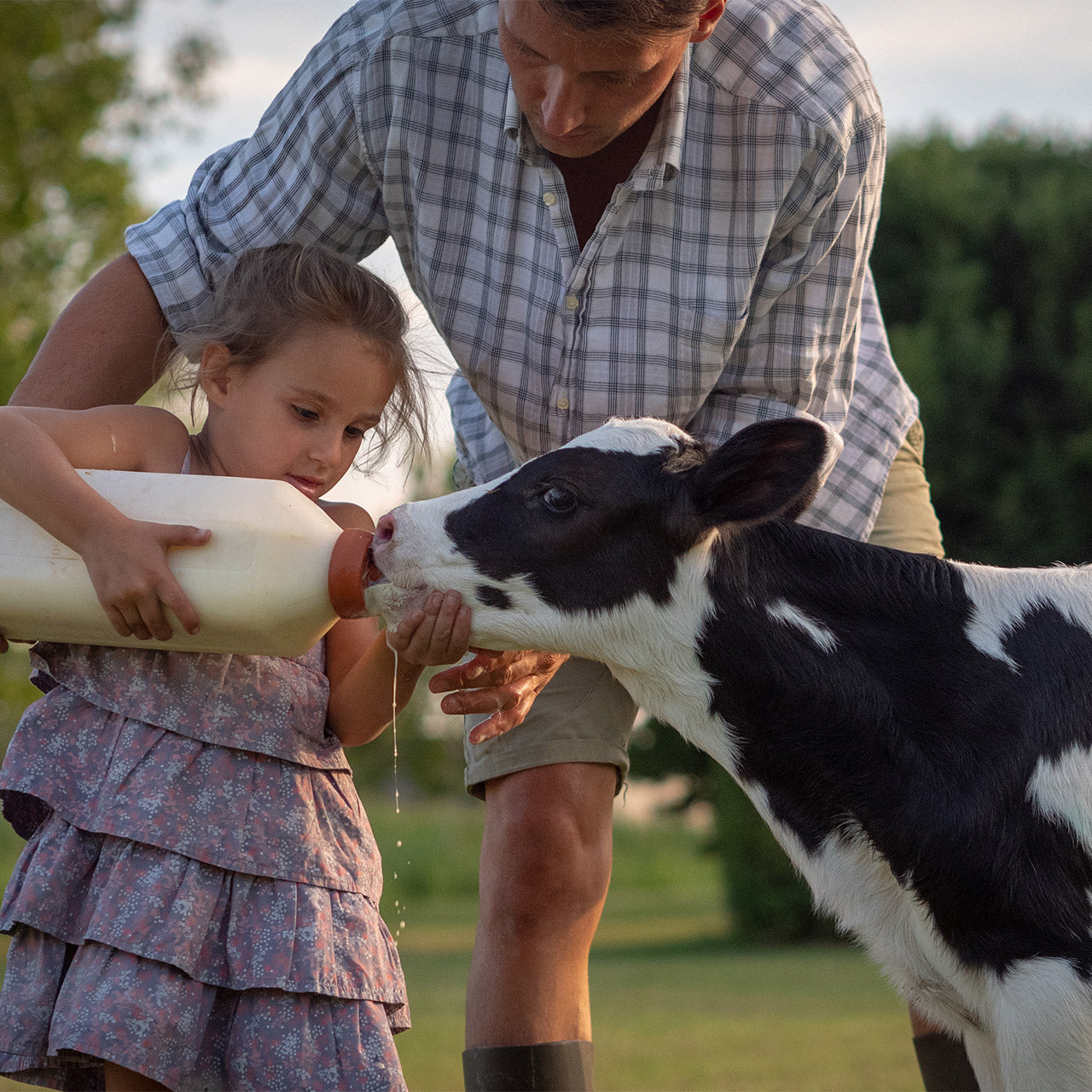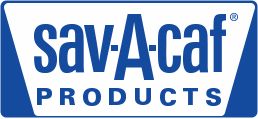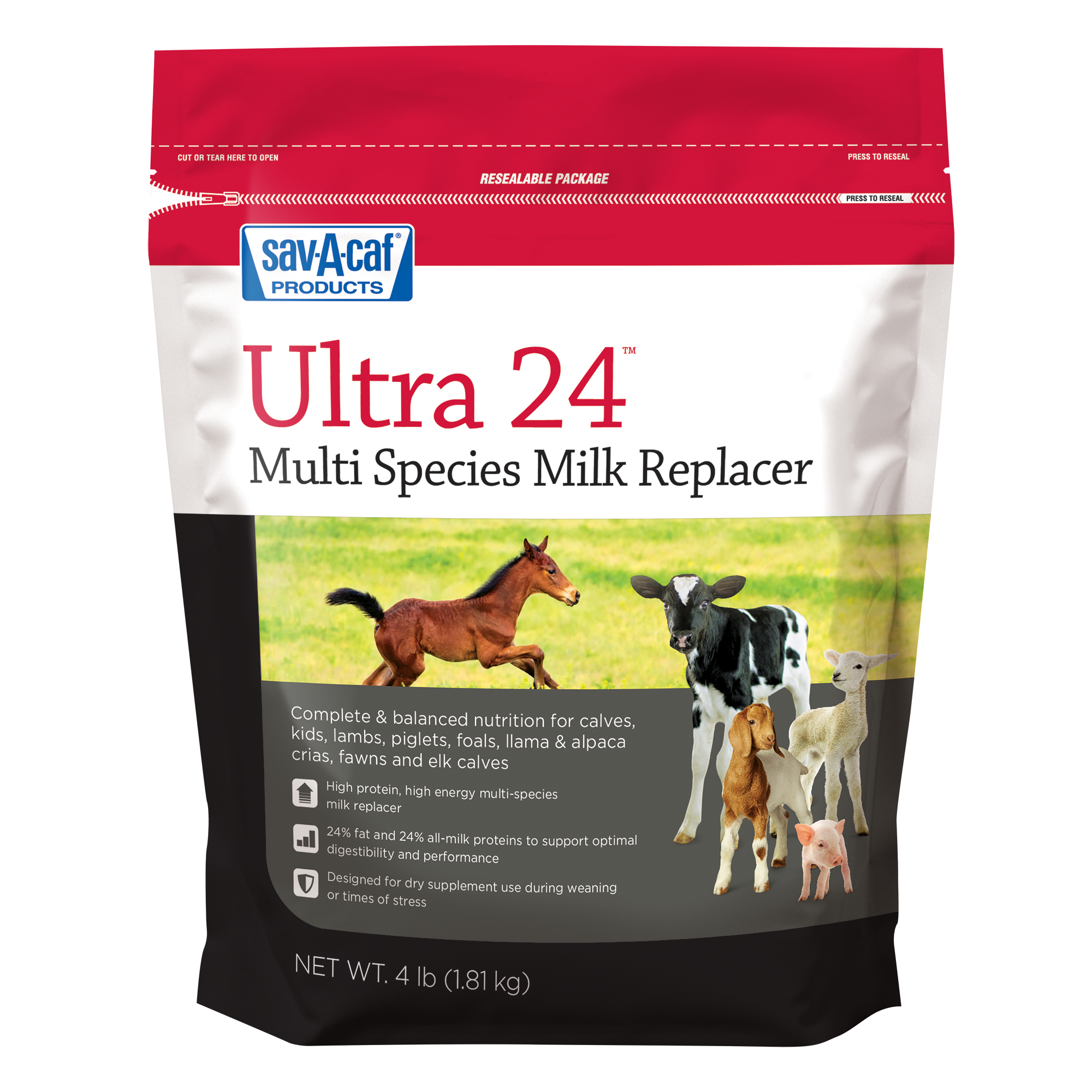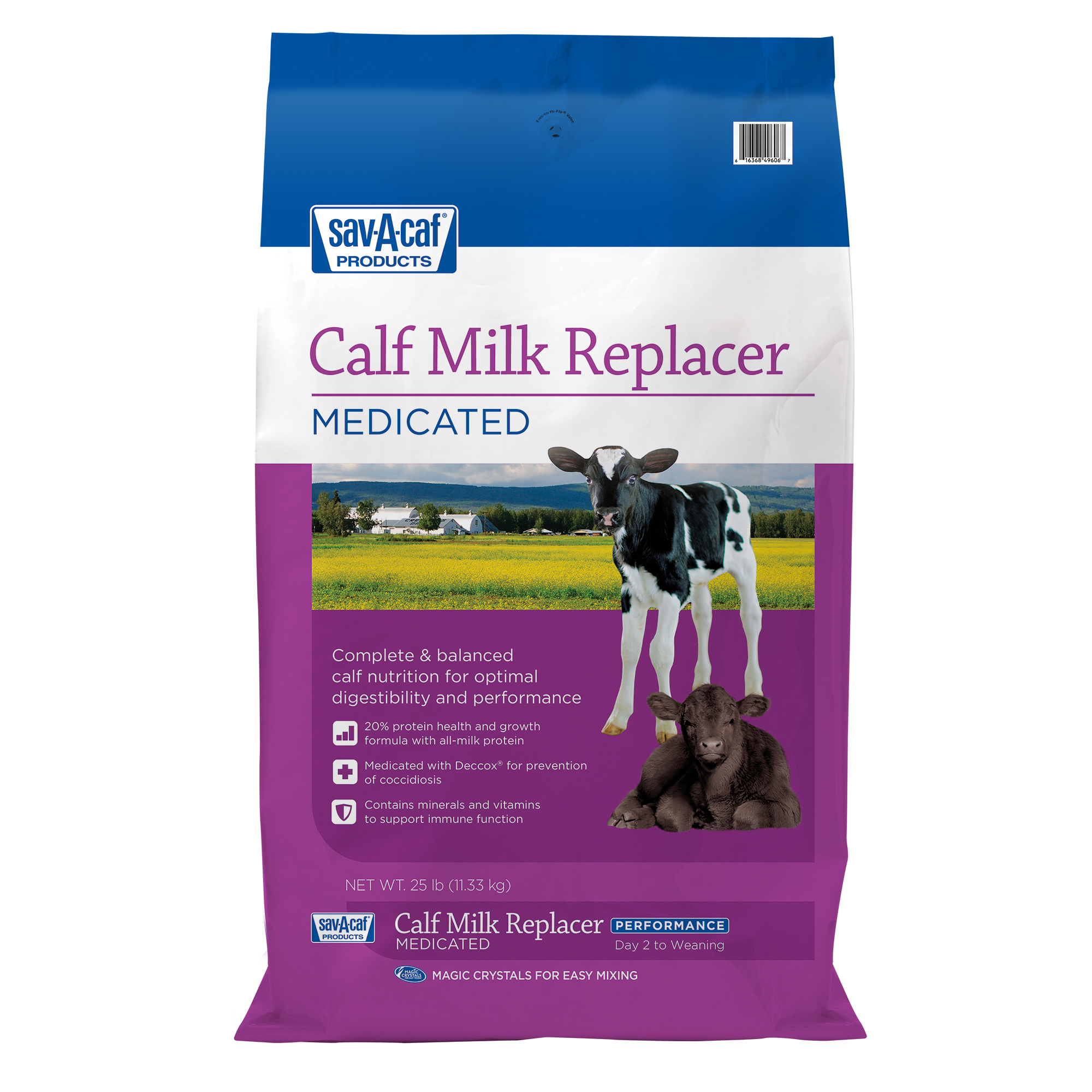
4 Tips to raising healthy bottle calves
Raising bottle calves is an exciting adventure. By ensuring a great start in the first weeks of life, you’ll help set the stage for growth and performance.
Healthy calves in the first part of life may become less exposed to setbacks and health challenges later in life, which can result in optimal growth and lower management expenses.
Here are four keys to raising healthy calves:
1. Support early calf health
Nutrition plays a significant role in early calf health. Supplements are available to help you keep your calves feeling and performing their best.
Whether you feed your calves whole milk or milk replacer, consider an additive that optimizes early calf health. Look for one that delivers a source of live, naturally occurring microorganisms. Beneficial bacteria have been shown to help maintain normal intestinal microflora and optimize digestion.
Dried maternal colostrum can also help support calf intestinal health in the early stages of life. Some supplements will contain dried colostrum in addition to other beneficial ingredients.
Including maternal colostrum beyond day one has been shown to help support digestive health and immunity, resulting in optimal calf growth and overall calf health. In addition to immunoglobulin G (IgG), colostrum supplementation provides many more substances of value to the calf: immunoglobulins and immunity-enhancing molecules, as well as vitamins, minerals, growth factors and hormones.
2. Keep feeding equipment clean
Sanitation and maintenance of feeding equipment are also important for calf health. If not regularly washed and sanitized, equipment can quickly become a harbor for bacteria.
Cleaning tips:
- Always use a separate bottle or pail for each calf.
- Wash pails, bottles and nipples in hot, soapy water and rinse well after each feeding.
- Allow equipment to dry thoroughly between feedings. Moisture can create an ideal breeding ground for bacteria. If drying conditions are poor, consider drying the equipment with a clean towel.
- Sanitize before use with an approved disinfectant. For example, chlorine dioxide is an effective sanitizer at a low concentration.
3. Provide proper housing
When it comes to housing, with some advanced preparation and supplies, you’ll be set to give new calves a strong start.
Keep these guidelines in mind:
- House calves in individual housing until weaning for the best chance of controlling disease spread from calf to calf.
- Ensure adequate ventilation without direct drafts.
- Provide and maintain a thick layer (6-10 inches) of clean, dry bedding of straw or shavings so the calf can easily nest into the bedding.
- Prevent nose-to-nose contact.
- Disinfect hutches or stalls thoroughly between calves.
4. Stay ahead of calf health challenges
Part of raising healthy calves is always looking ahead and trying to prevent stressful situations.
As a calf raiser, part of your role is to pay close attention to temperature shifts, vaccinations, transportation or weaning. And those are all factors that can cause calves to experience stress that can result in calf health challenges such as scours. Feeding an electrolyte supplement ahead of these situations to avoid dehydration can help keep calves thriving.
Electrolyte supplements can help support a calf’s immune system and keep them feeling their best. Be sure to offer electrolytes in addition to the calf’s normal diet, as electrolyte supplements do not contain all the nutrients of whole milk or milk replacer.
A calf’s first few months lay the foundation for their future. By providing proper nutrition and supplements, along with adequate housing and clean feeding equipment, you can give calves a healthy, productive life.
Now that you know a bit more about successfully raising bottle calves, check out some more management tips here. Be sure to like My Farm Journey on Facebook to keep up with new insights!



